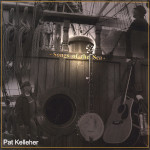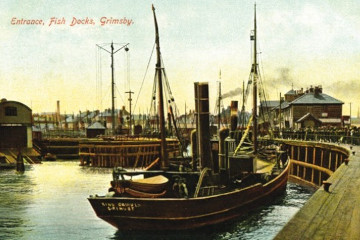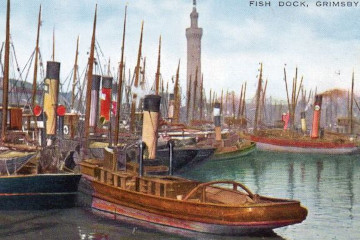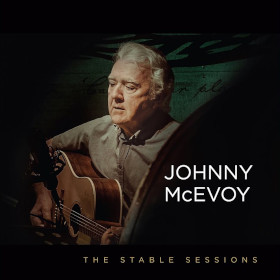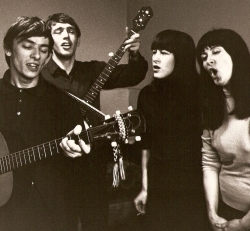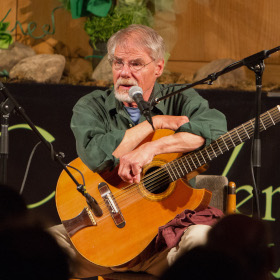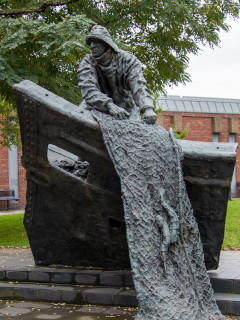FolkWorld #75 07/2021
Dai Woosnam's DAI-SSECTING THE SONG
Three Score And Ten - by William Delf (writer)
Before I tell you about the song I have selected as the tenth one to go under the Dai Woosnam microscope, let me preface this article with what has now become part of the wallpaper in this series: if you like, see the following four bullet points below as being akin to the “small print” in this contract between you the reader, and me the writer. Here goes...
It is a given that I might be talking total balderdash. After all, I have no monopoly on the truth. And even when my insights are proven correct, that does not stop you dear reader, from finding your own views to be totally antithetical to mine. But here is my news for you... we can both be right.
As Bob Dylan famously wrote “You’re right from your side/I’m right from mine”. And (much less famously) exclaimed in a press conference on his first full tour of the UK, when asked the meaning of a particular song... “My songs mean what they mean to YOU... man!”.
So don’t please write in vituperative language to the Editor to tell him that Dai is, to use the familiar English phrase, “barking up the wrong tree”. I might well be. And certainly every line of my views here are not endorsed by the Editorial Board of FolkWorld. Nor should they be.
Why have they hired me? Not sure. But my dear wife Larissa suggests it’s perhaps because they like the sound of my barking. I must say, I cannot top that conclusion...so I will end my preamble here, and get down to business.
For my tenth song, I stay in England for the de facto anthem of Grimsby, N.E. Lincolnshire...
Three Score and Ten
This song was a tribute to the fishermen from Grimsby drowned at sea in the horrendous storm that hit the east coast of England on the night of 8th & 9th of February 1889.
I have seen it wrongly described as a shanty: of course it is nothing of the sort. It is the saddest of ballads: one that pulls at your heartstrings, yet – with its stirring melody - helps us not to despair, but to feel proud of the bravery of the lost fishermen.
Here are the lyrics...
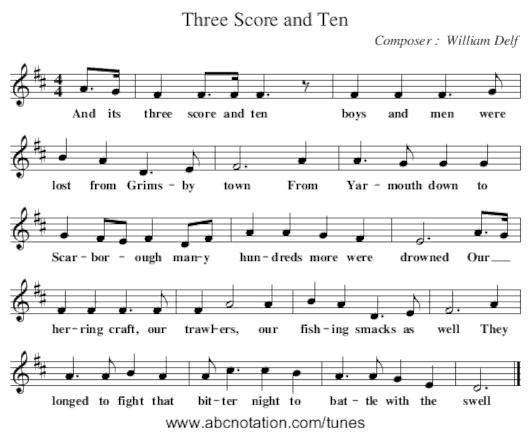
Methinks I see ahost of craft
Spreading their sails alee
As down the Humber they do glide
All bound for the Northern sea
Methinks I see on each small craft
A crew with hearts so brave
Going out to earn their daily bread
Upon the restless wave
[Chorus]
And it's three score and ten
Boys and men were lost from Grimsby town
From Yarmouth down to Scarborough
Many hundreds more were drowned
Our herring craft, our trawlers
Our fishing smacks, as well
They long to fight the bitter night
And battle with the swell
[End of Chorus]
Methinks I see them yet again
As they leave this land behind
Casting their nets into the sea
The herring shoals to find
Methinks I see them yet again
And all on board’s all right
With their nets rolled upand their decks cleaned off
And the side lights burning bright
[Chorus]
Methinks I've heard the Captain say
"me lads we'll shorten sail
Forthe sky to all appearances
Looks like an approaching gale
”Methinks I see them yet again
The midnight hour is past
The little craft a-battling there
Against the icy blast
[Chorus]
That October night brought such a sight
As was never seen before
There were masts and yards and broken spars
Came floating tothe shore
There were many a heart ofsorrow
Many a heart so brave
And many a hearty fisher lad
That met a watery grave
[Final Chorus]
Two words in that chorus have always puzzled me. The first is "Yarmouth DOWN to Scarborough"... surely, just the most fleeting glance at any map should tell you that it is Great Yarmouth UP to Scarborough. So, like many other people with an inbuilt compass, when I sing the song, I always change the words "from Yarmouth down to Scarborough" to "from Yarmouth TOWN to Scarborough".
Sacrilege? Maybe. But I feel I have to, for that line to make sense.
And then we come to the second word. It is to be found in the penultimate line of the chorus... "they long to fight". Eh? Presumably the writer was thinking of the ghosts of the drowned men wanting to carry on fighting the murderous elements...? Who knows?
But it still sounds peculiar to my ear, so like other folk I know, I prefer to sing "They long DID fight". Some like that great Lincolnshire singer, the late Brian Dawson, sing “They long DEFIED the bitter night”.
And lest anyone say that changing words of a lyric is contemptible, let me remind them that this has been part of the Folk Tradition going back many centuries.
And after all, if it was good enough for the Russian and German nations to change whole chunks of the words of their national anthems to airbrush out the Soviets and the Nazis, then tweaking two words here, is good enough for thee and me...
And what a song it is.
The words were composed - as a poem issued as a broadside - by Grimsby fisherman William Delf to raise money for the affected families. Delf was believed by Bert Lloyd to have been born 90 miles north of Grimsby, in the North Yorkshire port of Whitby... although there is also powerful evidence that he was born in Wangford, Suffolk in 1851.
Just who it was who fitted the stirring melody to the words, we know not. Maybe Delf himself...?
Various suggestions have been made over the years as to the origin of the melody. None of them too convincing, and one or two frankly absurd: the daftest being it is the Christmas song Jingle Bells in a folkie guise. True, this American classic was written more than 30 years before Delf’s poem, but the link seems really tenuous... the two melodies seem only distantly related. (More fourth cousins than siblings...!!)
Hopefully a reader can write and tell me the source of this unforgettable melody... (and I have another question for that reader at the end of this piece)...
Of the events depicted in the song...
The Hull Times, said on March 2 1889: "As day after day passes and no tidings arrive of the missing Grimsby smacks, it is beginning to be realised that the gale of the 9th will prove one of the most disastrous to the Grimsby fishing trade on record.
"All together nearly a dozen fishing vessels carrying between 60 and 70 hands are missing. Most of these vessels were only provisioned for 8 or 9 days and many of them have been out now for over a month.
"Many of the men who have been lost leave wives and families and an immense amount of distress will be caused among the fishing population."
You can imagine the tears in 1889. Such a terribly sad event.
I come from a coal mining community in Wales, and as a nine year old, well remember the heartache in my own village at the loss of life in the local coal mine explosion, a mile down the road. (And that was only 13miles away from the village of Senghenydd, where 439 miners were killed one terrible morning in the year before the start of World War One...)
But enough of my words. Let us listen to some recorded versions. Please note that no two recordings use quite the same lyrics... (more on that later)...
Here to start, is a very decent version from that vastly popular Irish folk/country star, Johnny McEvoy. I cannot fault it, other than simply say that I think this is a song that really lends itself to harmony singing, and so I think it more suited to a folk group rather than the solo voice... but gee, Johnny here makes me question my beliefs... and oh, I so admire his clarity of diction...
And now, here is a three part harmony a cappella group par excellence... The Ballina Whalers (of recent blessed memory): Pete Truin, Jamie Doe and Sam Brookes, who are (as they term themselves) “three musical barnacles clinging to the creaking hull of a musical tradition stretching back over hundreds of years”.
Listen to this, and marvel at Sam (nearest camera) and his singing of the upper part, in true countertenor style. Such exquisite ornamentation...!! I positively drool at his ethereal voice finding such a sweet harmonic line in that chorus...
But I guess that the version I crown as my favourite, just has to be this from the original Watersons line up (not the Waterson:Carthy line up as photographed here on the album cover, though surviving founder-member Norma’s uninhibited brio helped make the early Watersons so inimitable). Golly, her brother the late Mike Waterson was a “one-off” if ever there was one: how he throws the rulebook out the window when it comes to harmony singing.
He occasionally follows his own internal metronome - though here I must stress his timing is impeccably conventional - and seemingly disregards the perfect musical timing of his three colleagues… but far from there being a car crash, the result is always pure auditory bliss.
If this won’t put a frisson through you, then I don’t know what will...
And the last version I will leave you with is from the fabulous Gordon Bok. When driving in Maine in 2012, I saw the signs for Camden, and thought of Gordon (whose birthplace it was) with his fabulous bass-baritone voice.
And great to hear him sing “did fight” instead of the puzzling “to fight”. And “that bitter night” instead of “the bitter night”. And “their battle with the swell” seems an - albeit minor - improvement too.
They long did fight that bitter night/Their battle with the swell
And before signing-off, let me also flag-up a glaring inconsistency that nobody seems to notice… viz… the last verse talks about That October night brought such a sight/As was never seen before…. Eh? October… ?! The events occurred in early February of 1889. Yet we all obliviously sing 'October'… perhaps because it scans better in the line of verse?
So, analysis over. But before I take my leave of you, I want to add that I am proud to live in Grimsby – or Great Grimsby, to give it its full name – a port which still holds the record for the greatest tonnage of fish landed in any UK port in one year. But fishing is a deadly dangerous profession, as a trip to the town cemetery will show, where you will see the mass grave of the crew of the steam trawler Leicestershire, lost with all hands, in the Pentland Firth on January 28th, 1938, but whose bodies (unusually) made it home... for the town to come to a standstill on the day of the funeral.
Alas relatives of so many other Grimsby trawlermen were not to have the same sense of closure: the cold Icelandic seas never gave up their loved ones’ remains. And on that subject, viz... not knowing where one’s loved one lies, I’ll leave you with a magnificent little verse you will read on a very fine monument in Grimsby’s town centre. Try though I may, I have yet to find who penned these words: but whoever it was, I salute that person for demonstrating pure genius...
Here photographed is the splendid memorial to the lost sons of the town, whose bodies have never been found...
And if you thought this memorial was good, just ready yourself... for here comes a glorious verse engraved on the memorial. A verse I reckon that - in its poetic excellence - is a genuine match for such a sculptural masterpiece...
It never fails to put a lump in my throat...
'I cannot bend beside his grave;
For he sleeps in a secret sea.
And not one gentle whispering wave,
Will tell the place to me.
But though unseen by human eyes,
And mortals know it not,
His Father knoweth where he lies,
And angels guard the spot.''
If any reader knows who the author was, please tell me. I know one thing: William Delf would have been hugely proud of those words, had he written them.
Dai Woosnam, Grimsby... 01/07/2021
dai.woosnam@folkworld.eu
Photo Credits:
(1) Dai Woosnam,
(2) 'Three Score and Ten',
(3) Pat Kelleher,
(4)-(5) Fish Docks Grimsby,
(6) Johnny McEvoy,
(7) The Ballina Whalers,
(8) The Watersons,
(9) Gordon Bok,
(10) Fisherman’s Memorial Grimsby
(unknown/website).
FolkWorld - Home of European Music
 Layout & Idea of FolkWorld © The Mollis - Editors of FolkWorld
Layout & Idea of FolkWorld © The Mollis - Editors of FolkWorld

